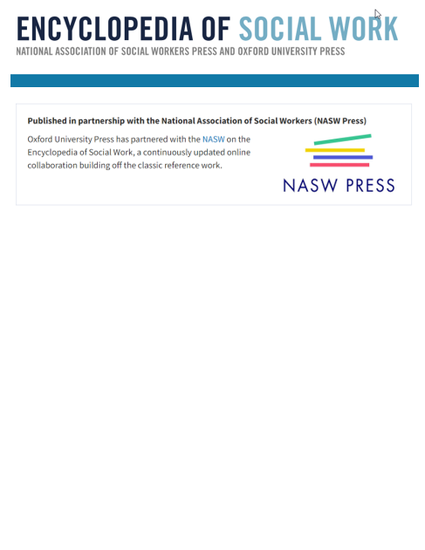
Article
Intersectionality and Social Work
Encyclopedia of Social Work [online]
(2015)
Abstract
Intersectionality refers to the intersection of identities that shape an individual’s standing in society. The combining of identities produces distinct life experiences, in part depending on the oppression and privilege associated with each identity. The intersectional approach is an alternative to the cultural competence model that can help social workers better address the unique and complex needs of their diverse clients. This entry provides a general overview of the historical and interdisciplinary roots of intersectionality and addresses its use as a theoretical perspective, methodology, mechanism for social change and social justice, and policy framework in social work. The role of intersectionality in social work policy development, teaching, and research will be presented with consideration of future directions and areas for further development.
Disciplines
Publication Date
March, 2015
DOI
10.1093/acrefore/9780199975839.013.961
Citation Information
Ann Marie Yamada, Lisa M Werkmeister Rozas and Bronwyn Cross-Denny. "Intersectionality and Social Work" Encyclopedia of Social Work [online] (2015) Available at: http://works.bepress.com/bcrossdenny/11/
